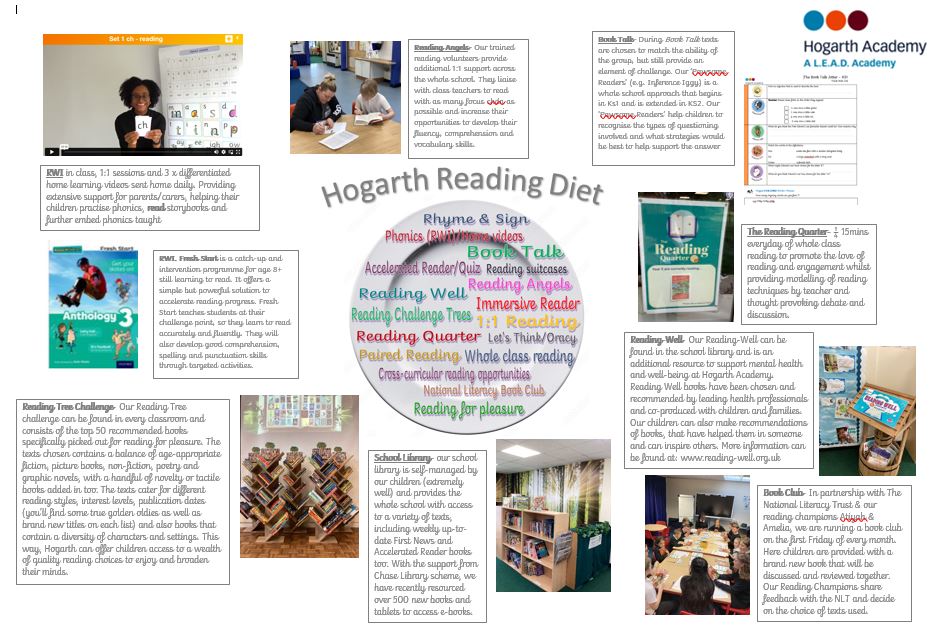Subject Leader :
At Hogarth Academy, we believe that literacy and communication are key life skills. Through the English curriculum, we will help children develop the skills and knowledge that will enable them to communicate effectively and creatively through spoken and written language and equip them with the skills to become lifelong learners. We want children to enjoy and appreciate literature and its rich variety.
Literacy is at the heart of all children’s learning. Literacy enables children both to communicate with others effectively for a variety of purposes and to examine their own and others’ experiences, feelings and ideas, giving these order and meaning. Because literacy is central to children’s intellectual, emotional and social development it has an essential role across the curriculum and helps pupils’ learning to be coherent and progressive.
Our overarching aim for reading at Hogarth Academy is to: develop positive attitudes towards reading, so that it is a pleasurable and meaningful; use reading skills as an integral part of learning throughout the curriculum; read and respond to a variety of texts whilst gaining increased level of fluency, accuracy, independence and understanding; develop different strategies for approaching reading and be able to orchestrate the full range of strategies.
This will be achieved through the Hogarth Reading Diet:

We believe that children should be exposed to a variety of rich, quality texts. We aim to develop the ability to produce well-structured, detailed writing by using a specific writing process.
Children should learn to: write in different contexts and for different purposes and audiences, be increasingly aware of the conventions of writing, including grammar, punctuation and spelling, plan draft and edit their writing to suit the purpose, use ICT as a literacy medium for presenting work and manipulating text, form letters correctly, leading to a fluent joined and legible handwriting style, giving increasing regard to presentation.
Teachers promote writing and look for ways to inspire and motivate pupils so that they see themselves as ‘writers’. Teachers establish the purpose and audience for writing and make teaching objectives explicit to pupils so they know why they are studying a particular text type, the kind of writing activities they need to undertake and what the expected outcome will be.
From the moment children enter our school, we aim to make a flying start with Communication and Language.
From our EYFS unit, working hard to develop children’s communication & language, all the way through to Year 6 working on Oracy and listening skills, we provide as many opportunities as possible to enhance spoken language.
Children need to be able to: Communicate effectively, speaking with increasing confidence, clarity and fluency, participate in discussions and debate in a variety of contexts, listen to the views, opinions and ideas of others with increased interest, articulate ideas and thoughts clearly with appropriate tone and vocabulary recognising audience, respond to questions and opinions appropriately, retell stories and poems which are known by heart, ask questions with increasing relevance and insight.